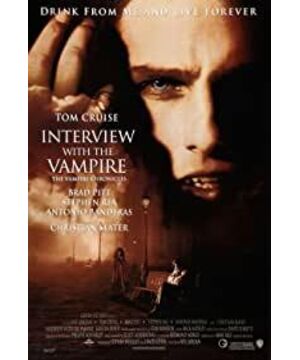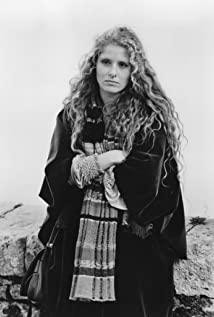It's all nonsense.
When the Warner Bros. production logo appeared and the familiar soundtrack style sounded, I thought it was a fantasy story about a vampire. I didn’t expect the author to obviously have greater ambitions (but also obviously did not display this ambition): From the story From the beginning of New Orleans, the history of the colonization of blacks and the rise of ancient empires such as Spain, France and Britain as a power arena cannot be ignored, but the film seems to have no intention of asking whether it was a farmer or a vampire. Louis, how his wealth was accumulated, the camera turned, he even became the redeemer of black slaves in the struggle between his morality as a man and his bloodthirsty nature as a vampire. The scientific discourse of the Black Death that dispels the vampire myth is dispelled in the film, but the black people who dance and pray around torches and their culture are still displayed and characterized as ignorance.
Compared with everyone else, the logic of action played by Pete is so empty that he can't get the understanding and empathy of any audience. When he watched the little girl kill his creator, Lestat, he was very at a loss. There was no violent little girl. The action energy displayed did not show any emotional shock or impact for the little girl’s behavior. In short, he took the little girl and left; and when he met Armand, he was inexplicably attracted at first sight. In the passage of the beautiful man, I did not understand the contradiction between him and the so-called vampire group. It seems that Armand, as a member of the vampire group, can no longer tolerate the latter's decadent temperament and elder style, and wants Louis to bring a touch of innovation. So this is the reflexiveness of capitalism?
It doesn’t matter anyway. Louis’s approach is to burn everything and enter a new paragraph. In this paragraph, I must say that the immortality characteristics of a vampire seem to bring convenience to the review and performance of history. In the long history and numerous historical events, the director chose the movie as an important presentation content! After paying tribute to and reviewing the history of film through three movie screenings in the cinema (these three nodes are the birth of Gone with the Wind and the Superman movie respectively), the director even put forward a countermeasure through the plot arrangement of the vampire who resurrected and feared the car lights. A series of reflections on the consequences of modernity such as light pollution and noise pollution in the industrial age, while reporters’ obsession with vampire stories and fascination with vampire characteristics reflect modern people’s blind pursuit of progressiveism and development discourse.
Bravo!
But I wrote so long just to say that this is a bad film(?), the above content does not actually exist in the movie.
View more about Interview with the Vampire: The Vampire Chronicles reviews











